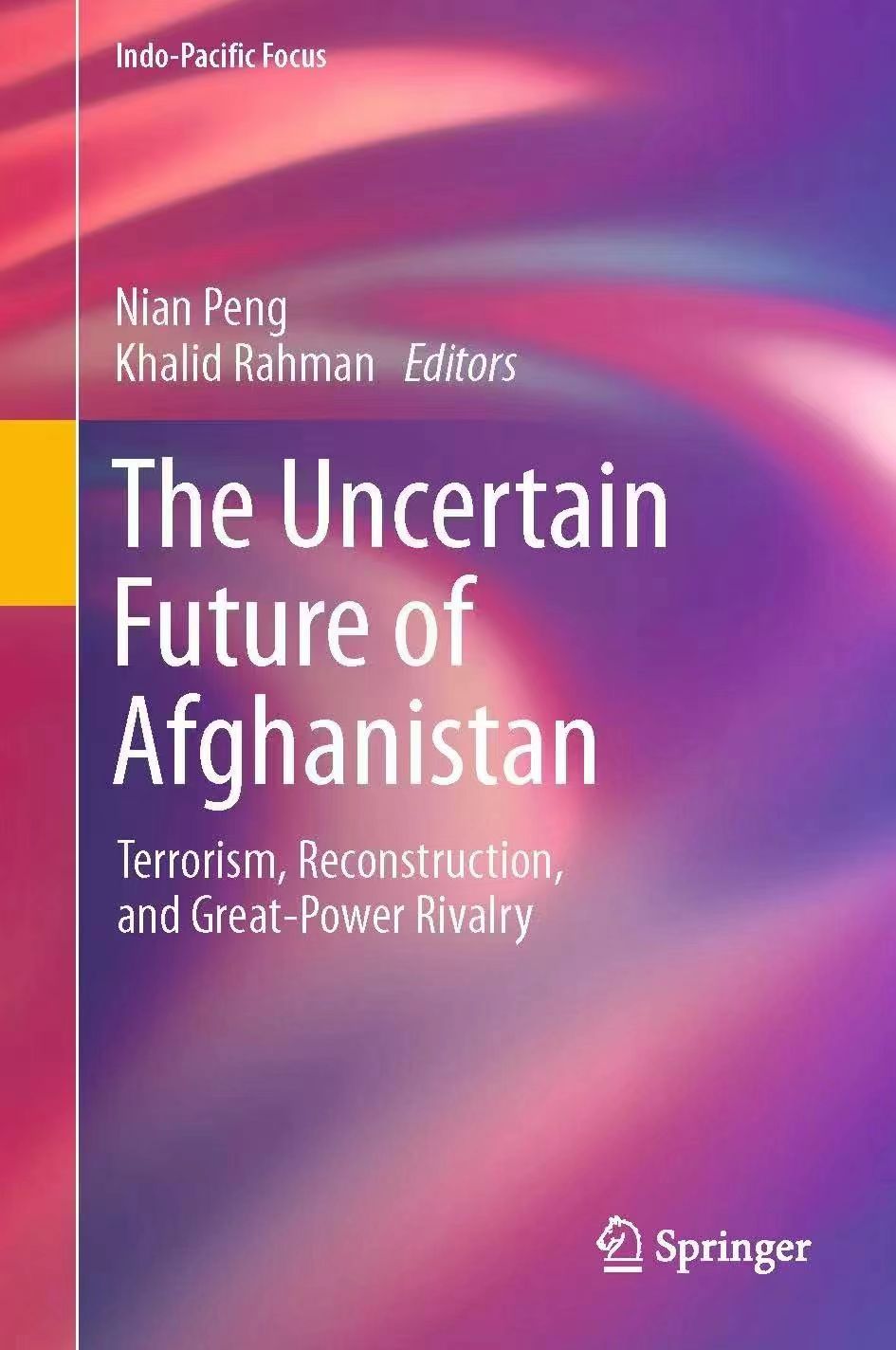RCAS New Book of Afghanistan is Published by Springer Nature!
Time: 2024-06-22 Author: RCAS
RCAS is proud to announce that the new book-The Uncertain Future of Afghanistan: Terrorism, Reconstruction, and Great-Power Rivalry is published by Springer Nature in June 2024. Nian Peng, Director of RCAS, and Khalid Rahman, Chairman of the Institute of Policy Studies (Islamabad) and nonresident senior fellow of RCAS co-edited this book.

▲The title page of RCAS new book of Afghanistan.
This edited book aims to analyze the domestic politics and foreign relations of the country after the Taliban regained power in August 2021. It touched upon the key issues affecting the Taliban regime, such as peace talks, terrorism threats, BRI cooperation, and the policies of the great powers and neighboring countries toward the new regime in Afghanistan. It makes a significant contribution by incorporating various viewpoints from government officials, university scholars, and think tank experts from China, Japan, and South Asian states. The broad approach and extensive coverage of all relevant countries make this book a valuable resource for more than just a specific academic community. It appeals to a diverse readership, including academics, policymakers, journalists, and general readers.
The main content of the book is divided into ten chapters, in which the first chapter briefly introduces the aims and scope of this book. The following 3 chapters look into the domestic politics in Afghanistan. These mainly include the Afghan peace negotiations, the challenge of the Taliban regime, and the security threats and regional response under the Taliban rule in Afghanistan. The next 6 chapters examine US's Afghan policy, China-Afghanistan relations, and Russia, India, Pakistan, Japan’s engagement with Afghanistan.
This new book is part of the book series-Indo-Pacific Focus, which is co-edited by Nian Peng and Ghulam Ali, Deputy Director of RCAS, with Springer Nature.
The series aim to conduct in-depth and dynamic studies on the new and emerging issues and the new trends of the contemporary geo-politics of the Indo-Pacific region. It covers the key economic, political, diplomatic, security, social and cultural issues in the Indo-Pacific region, mainly including the BRI, regional integration, multilateral cooperation, physical connectivity, economic corridor, debt issue, resource exploitation, great power rivalry, political development, maritime security, terrorism/counter-terrorism, poverty reduction, ethnic and religious tensions, etc. It also predicts the possible directions of the future of the geo-politics and geo-economy in the Indo-Pacific region by incorporating the most recent developments. It tries to create a main platform for the Asian and African scholars to compete with the West-centered views on the mentioned topics by inviting experts from East Asia, South/Southeast Asia, Middle East and Africa to contribute books/chapters.
The Springer Nature links: https://link.springer.com/book/10.1007/978-981-97-2409-3

